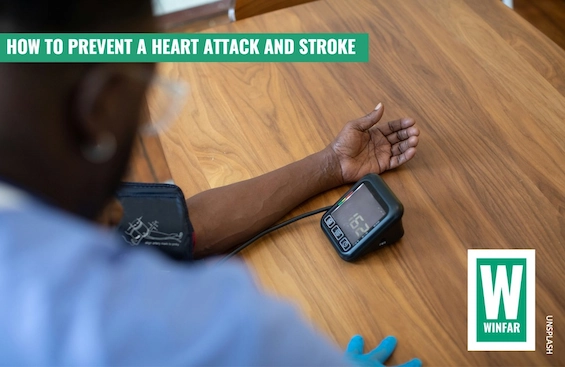6 Tips from a Cardiologist
Dr. Joel Kahn is a cardiologist who specialises in the prevention and reversal of heart disease. In this article, he shares his 6 best tips, a list of 6 questions to ask and tests to request to ensure the best possible care for your older adult.
Dr. Kahn’s expert recommendations take a preventative approach, helping you navigate our already overtaxed medical system, preventing oversight and ensuring your older adult receives the best possible heart health care both now and into the future.
Heart disease is so common that it causes 1 in 4 deaths in the U.S alone. But doctors are in most cases still not taking the correct preventative measures to prevent heart attacks and strokes in seniors.
To help seniors get the best care, caregivers need to be strong health advocates and ask for the important tests before serious symptoms show up. This can be intimidating because we’re not all. medical professionals and don’t know what to ask for. So, make a note of the following points, and be sure to keep them in mind, should the unthinkable situation ever arise:
Tests that could save your senior’s life
1. Ask for a coronary artery calcium scan (CACS)
A CACS is the most accurate way to find out if heart arteries are getting blocked. Without the scan, there will be no warning until the arteries are badly blocked. Dr. Kahn says “the first symptom you have may be the day you die.” Scary!
Key facts about CACS:
– Widely available CT scan
– Uses no dye
– Takes one minute
– More accurate than a stress test
– The score should be zero – anything higher means your older adult should see a preventive cardiology expert
2. In the ER, never leave without a complete evaluation
If your older adult has chest pain, pressure, tightness, or squeezing, Dr. Kahn recommends going to an emergency room, notan urgent care clinic.
What to ask for in the ER:
– A thorough evaluation
– “Serial” cardiac enzymes that are repeated 2 or 3 times every 4 to 6 hours
– A repeat ECG to compare to the initial one
– A definitive test before discharge – either a treadmill stress test with echocardiography (no radiation) or nuclear imaging (radiation). If CACS or advanced coronary CT angiogram (uses iodine dye) is available, do one of those to make sure arteries are clean.
Dr. Kahn says that ER’s are under pressure to get patients out the door so they’re not as likely to do in-depth exams. He’s seen charts from young people who got basic evaluations in the ER and were sent home, only to die of massive heart attacks within days. That’s why it’s so important to be a strong health advocate. Don’t be afraid to calmly, but firmly push back if the ER tries to discharge your older adult without proper evaluation.
3. Ask for 5 advanced lab tests
Dr. Kahn suggests asking for the following advanced tests. He says many commonly used tests have been around since the 1970s and are quite outdated.
Insist on these tests instead:
i) Advanced lipid profile:
Measures LDL particle number and size, which are more predictive of future heart and stroke events.
ii) Lipoprotein A:
It’s rarely used, but hundreds of research studies indicate that if it’s high, the risk of heart attack and stroke skyrocket.
iii) Homocysteine:
It’s important for artery and brain health. If elevated, it can be treated to bring the level back to normal.
iv) Inflammatory markers:
Best known is hs-CRP, but there are at least 5 others he recommends, like MPO.
v) TMAO:
A new marker of heart and kidney health that’s been shown to cause heart and kidney damage and is associated with worsened prognosis
4. Ask for an ECG
Routine physical exams used to include an ECG or EKG, but they’re usually skipped now. Dr. Kahn recommends asking for one to find out your older adult’s QT interval (time between waves of heartbeat).
If someone has a long QT interval (it’s genetic), they shouldn’t be prescribed common medications like cardiac drugs, antibiotics, antidepressants, and others that prolong the QT interval – that could cause death from cardiac arrhythmia.
5. Get a vascular screening
For seniors who smoke or have family history of early heart disease or stroke, a vascular screening could be worth it. This test uses an ultrasound to scan the carotid arteries, abdominal aorta, and legs.
The scan should show arteries with no plaque. If there’s “mild” plaque, get a complete evaluation by a vascular expert.
6. Check for drug interactions
Many drugs will interact with each other, food, or supplements. Even if the interaction isn’t fatal, it can affect how well the medication will work or if your senior will have side effects.
Dr. Kahn stresses the importance of reviewing medications for potentially fatal interactions, for example, those that make a long QT interval even longer.
See Dr. Kahn’s full article about how to prevent heart attack here: Thrillist

